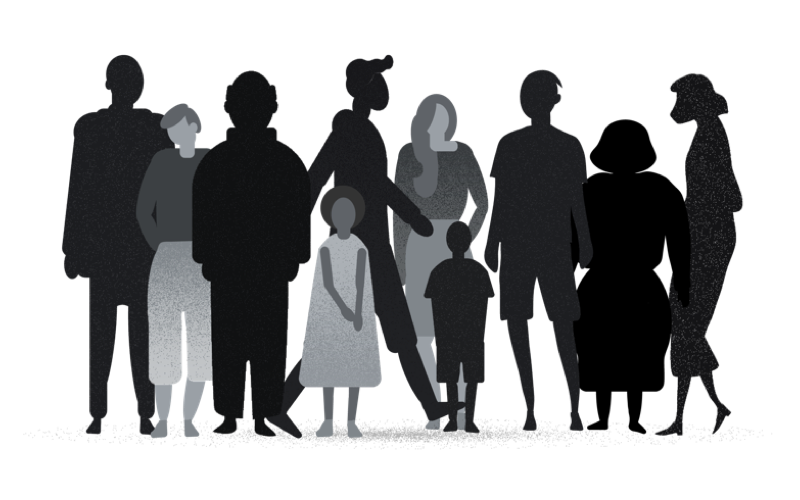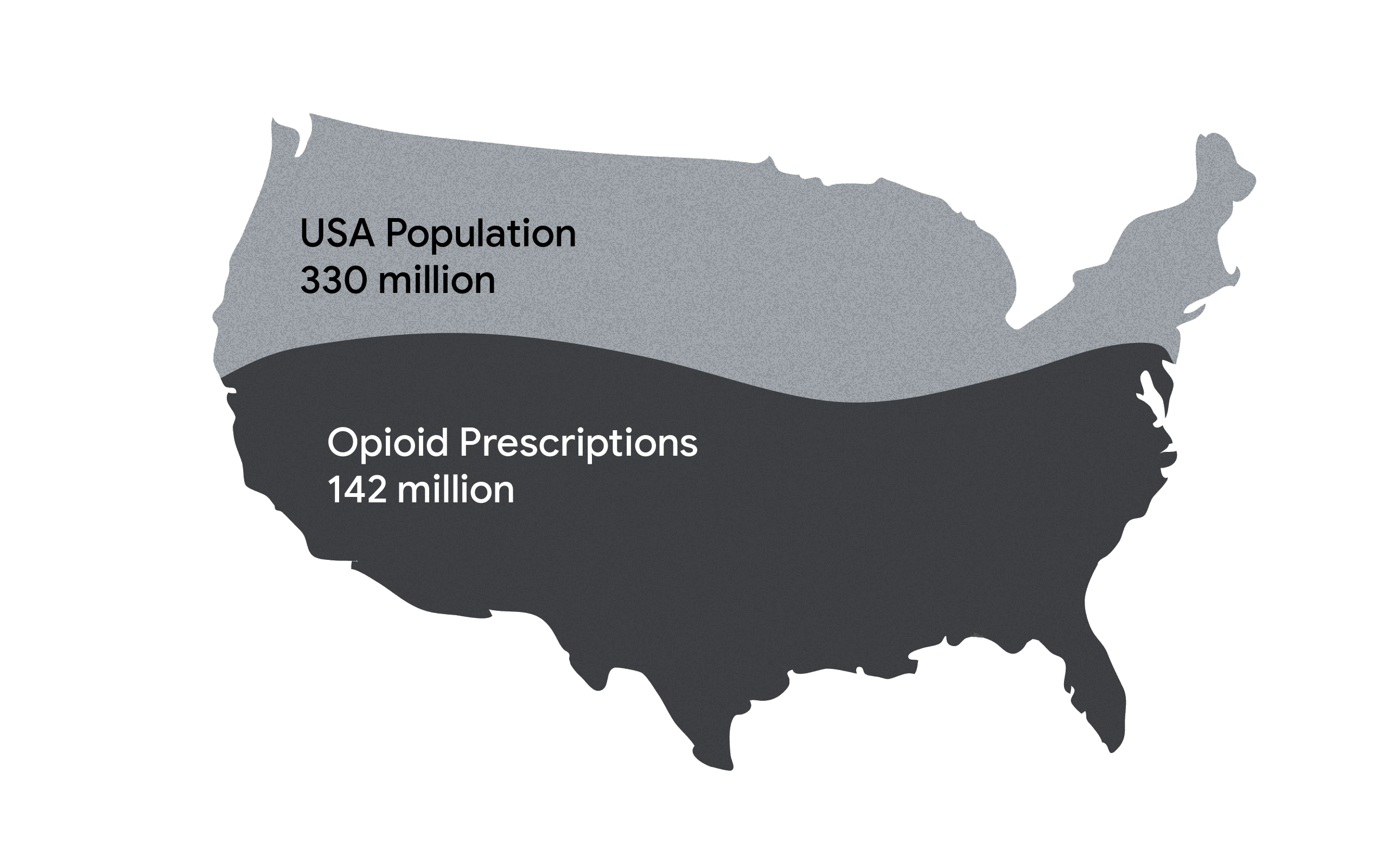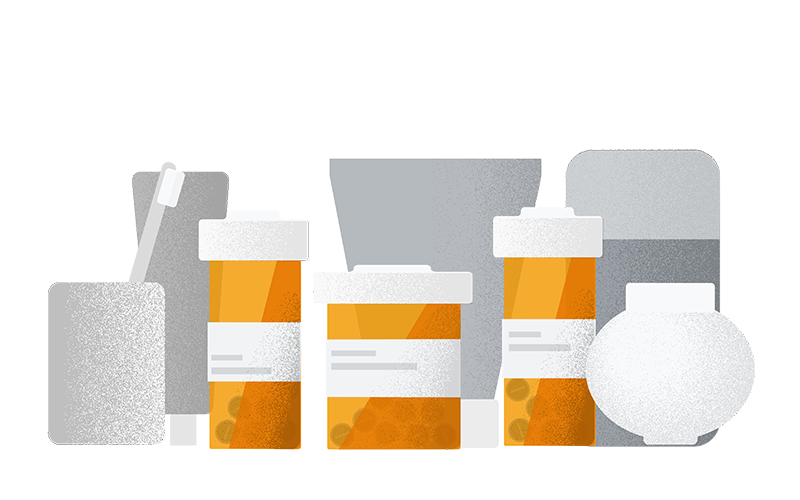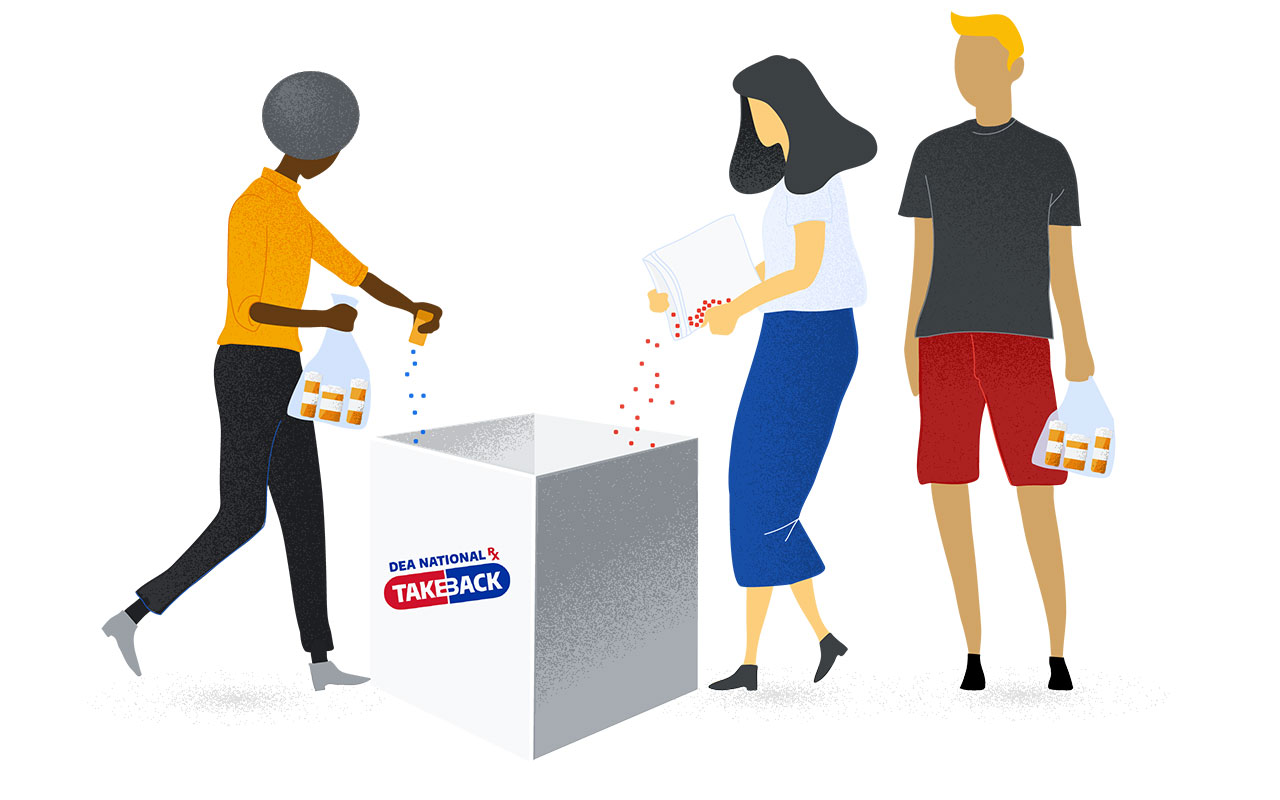
Find a Drug Disposal Location Near You
In addition to these Take Back Day locations, search Google Maps for "medication disposal near me" to see pharmacies, hospitals, police stations, and other locations that accept medication for disposal year-round. If you still can't find a location, there are other options for disposing of these medications from your home, such as mail-in take-back programs or by following FDA guidance.
It's important to safely dispose of unneeded medication
Help keep your loved ones safe
Two-thirds of people who misused prescription painkillers got them from a friend or family member.
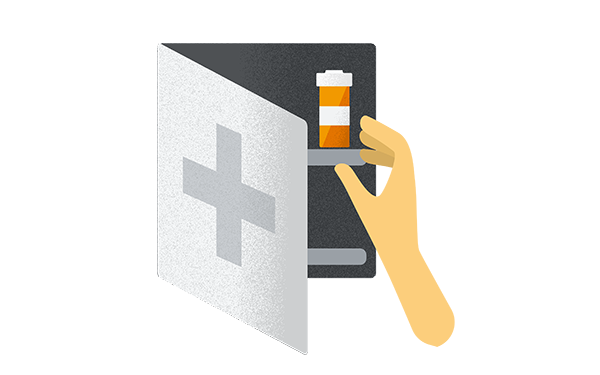
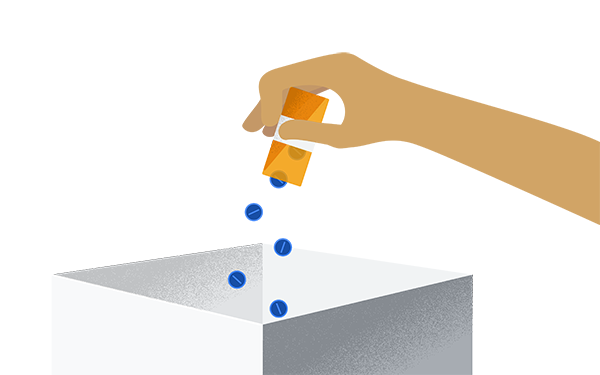
Make drug disposal a habit
Help keep your household and community safe.
Plan for Take Back Day
In April 2025, collection sites across the US will take all kinds of medications, no questions asked. This map will be updated with collection sites to help you find a convenient location.
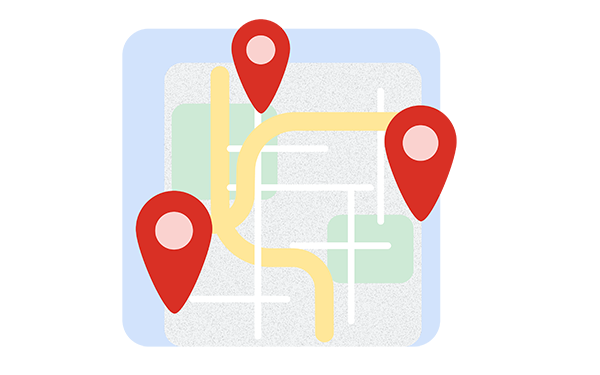
Life of a pill
Take back your unneeded drugs, and they’ll be incinerated. Help prevent drugs from contaminating your community’s drinking water.
Life of a pill
Take back your unneeded drugs, and they’ll be incinerated. Help prevent drugs from contaminating your community’s drinking water.
Four reasons why safe drug disposal matters
Environmental Risks
According to the EPA, most water treatment facilities cannot filter out drugs. Medicines that are poured down the drain can enter our environment and community drinking water supplies.
Accidental Use
Accidental drug overdose is one of the most common sources of household injury. Young children are especially at risk. A key part of securing drugs is disposing of them when they are no longer needed.
Health Risks
Keeping drugs in the home beyond the time when they are needed poses health risks. Expired drugs may not only be ineffective, they can be harmful to the user.
Intentional Misuse
Prescription drugs can be used to get high. The primary source for misused medicine is family and friends’ medicine cabinets. Research has shown that brain development continues into the twenties-early drug use may have an impact on this development.
Drug Facts
Frequently Asked Questions
Will I be asked for my ID?
No, prescription drug take back is always anonymous, no questions asked. You are also encouraged to black out your name on prescription bottles or simply empty out prescription bottles.
Can I dispose of drugs only on Take Back day?
No! Thankfully there are thousands of permanent locations in the US where you can drop off unneeded medication for proper disposal, such as pharmacies, police stations, and hospitals. Many of them are listed in Google Maps, and we're adding more all the time. Simply search for "medication disposal near me" on Google Maps for locations near you.
What happens to my pills once I drop them off?
After collection ends, all collected pills are securely stored and transported to a safe location for destruction. Typically, pills are incinerated.
What if I throw away drugs in the trash or flush them down the toilet?
It's best for environmental and safety reasons to bring them for proper disposal on Take Back Day or at a permanent location. Medications thrown away can still be misused, and flushing drugs down the toilet can contaminate the water supply. If you can't find a location, mailback programs are another option. If you can't avail of any of those options, the FDA guidelines for medicine disposal options say to mix the medicine with an undesirable substance such as used coffee grounds or kitty litter, and discard in a separate, sealed container. Remember to protect your privacy and scratch out your personal information on the original container.
How do I set up a take back event in my community?
It's straightforward to set up your own event for an upcoming Take Back Day. Michigan OPEN has put together a step-by-step planning guide here that you're welcome to follow.
Where can I turn for help with an addiction?
Many states have services to help find substance use treatment. You can see what's available in your state by visiting our treatment page.
Additionally, free and confidential support (English and Spanish) is available:
Additionally, free and confidential support (English and Spanish) is available:
- For caregivers of children struggling with substance use disorder, contact the Parent Helpline at 855-DRUGFREE.
- The SAMHSA National Helpline provides treatment referral and information for individuals and families at 1-800-662-HELP anytime.
- If you are in need of immediate or emergency services, please call 911 or a 24-hour crisis hotline such as the National Suicide Prevention Lifeline 988.

